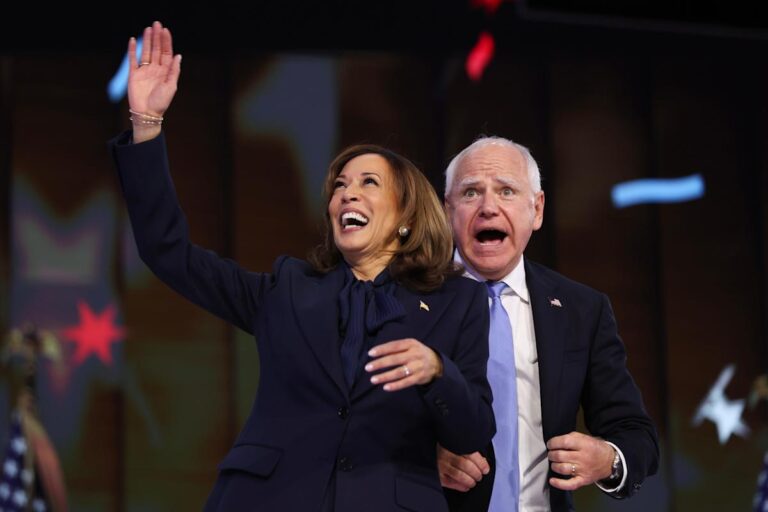Democratic Party Challenges in the Trump Era
As President Donald Trump resumes his role in the White House, attention turns to his political opponents, notably Democrats Kamala Harris and Tim Walz. Their recent public appearances raise questions about their strategies and the direction of the party in the face of a second Trump term.
Recent Public Engagements
Kamala Harris spoke on April 30 to a gathering focused on encouraging women to enter politics. During her address, she reiterated familiar critiques of Trump, asserting that he is inciting a “constitutional crisis.” In a somewhat unconventional analogy, Harris referenced elephants in a San Diego Zoo that circled to protect their young during an earthquake, suggesting that Democrats should emulate their protective instincts.
Meanwhile, Tim Walz, the Governor of Minnesota, addressed the future of the Democratic Party at Harvard’s Kennedy School. His remarks included reflections on why Harris selected him for the ticket, stating, “I could code talk to white guys − watching football, fixing their truck… that I could put them at ease.” This candid admission might provoke skepticism regarding his approach to connecting with voters.
Presenting a Credible Alternative
The rhetoric from Harris and Walz suggests that the Democratic Party is grappling to define itself amid Trump’s continued influence. Observers note that while Democrats often focus on criticizing Trump, they have yet to articulate compelling alternatives on pressing issues such as border security, trade, and the national deficit.
Polling Perspectives
Recent polling results indicate that public confidence in Trump’s leadership remains resilient. A CNN survey revealed that 42% of U.S. adults believe Trump has performed better than Harris would have. Additionally, a Washington Post-ABC News-Ipsos poll found that 40% of registered voters trust Trump over congressional Democrats in addressing the nation’s key problems.
The Quest for New Ideas
As Democratic leaders voice their frustrations, they face ongoing criticism about their strategy. Illinois Governor JB Pritzker recently called for a more assertive approach, urging members of his party to mobilize against Republicans. His rhetoric included strong condemnations of Trump, referring to him as a “madman,” which could further alienate some moderate voters who may prioritize stability over incendiary rhetoric.
Looking Ahead
The Democratic Party finds itself at a crossroads, needing to shift from merely opposing Trump to articulating a forward-thinking agenda that resonates with a broad electorate. Insistence on past grievances will not suffice. Voters expect innovative solutions that transcend the status quo.
Only by embracing a clear and visionary path can Democrats hope to regain the trust of a divided electorate concerned about the party’s future direction.



